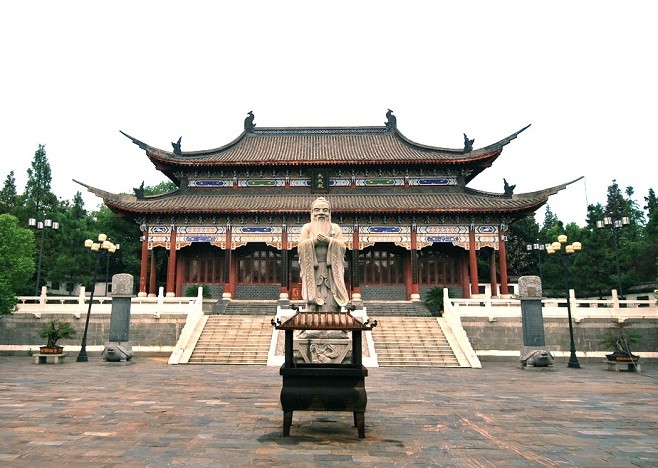Confucius, who left the world in 479 B.C., still makes news in the 21st century.
UNESCO's Memory of the World Regional Committee for Asia and the Pacific (MOWCAP) made it possible for the Confucius family documents to be considered for inclusion in the Memory of the World Register as it accepted the application for these precious records, reported The Global Times.
Kong Deping, State Bureau of Cultural Relics (SBCR) director, said that having the family documents inscribed will encourage the exertion of “greater efforts” in preserving “the history of Confucius.”
Kong Wei-qian, one of the 78th-generation descendants of Confucius, opted to major in marketing than get a degree in education, with the latter being her father’s wish, reported The China Post.
Confucius was a prominent educator and philosopher.
When Kung Te-cheng passed away in 2008, his grandson, Taiwanese businessman Kung Tsui-chang, became the second Sacrificial Official to Confucius.
During an interview with Sinosphere, the China blog of The New York Times, the 40-year-old 79th-generation direct descendant of Confucius said, “I am proud to be a descendant of Confucius, but I wouldn’t dare consider myself as his representative.”
His son Kong You-ren and daughter Kung Yu-xin are now the 80th-generation descendants.
Korean descendants of Confucius can number up to 80,000, reported Shanghai Daily.
According to the U.N. official website, the Memory of the World Register “lists documentary heritage which has been recommended by the International Advisory Committee, and endorsed by the Director-General of UNESCO, as corresponding to the selection criteria regarding world significance and outstanding universal value.”
Traditional Music Sound Archives became the first ever documentary heritage of the country inscribed to the Memory of the World Register back in 1997.
Others include the Records of the Qing's Grand Secretariat: “Infiltration of Western Culture in China” (year of inscription: 1999), the Ancient Naxi Dongba Literature Manuscripts (2003), the Golden Lists of the Qing Dynasty Imperial Examination (2005) and the Qing Dynasty Yangshi Lei Archives (2007).
The most recent ones were the Documents of Nanjing Massacre (2015), the Official Records of Tibet from the Yuan Dynasty China, 1304-1367 (2013), and the Qiaopi and Yinxin Correspondence and Remittance Documents from Overseas Chinese (2013).
Among the countries in Asia and the Pacific, China ranks as the second with the most number of documentary heritages inscribed: 10.
The Islamic Republic of Iran has nine, with the latest ones being Al-Masaalik Wa Al-Mamaalik (a geographical book) and Kulliyyāt-i Saʽdi (the literary artwork of 12th-century Iranian poet Saadi Shirazi), which were both inscribed in 2015.
South Korea tops the list with 13. The Archives of the KBS Special Live Broadcast “Finding Dispersed Families” and the Confucian Printing Woodblocks were inscribed in 2015.
Originally named K'ung Ch'iu according to Encyclopedia of World Biography, K'ung Fu-tzu (Great Master K'ung), Latinized as Confucius and also known as K'ung Chung-ni, propagated Confucianism.
Confucianism, according to Encyclopaedia Britannica, is “a worldview, a social ethic, a political ideology, a scholarly tradition, and a way of life.” It adds that it is also “sometimes viewed as a philosophy and sometimes as a religion.”



























